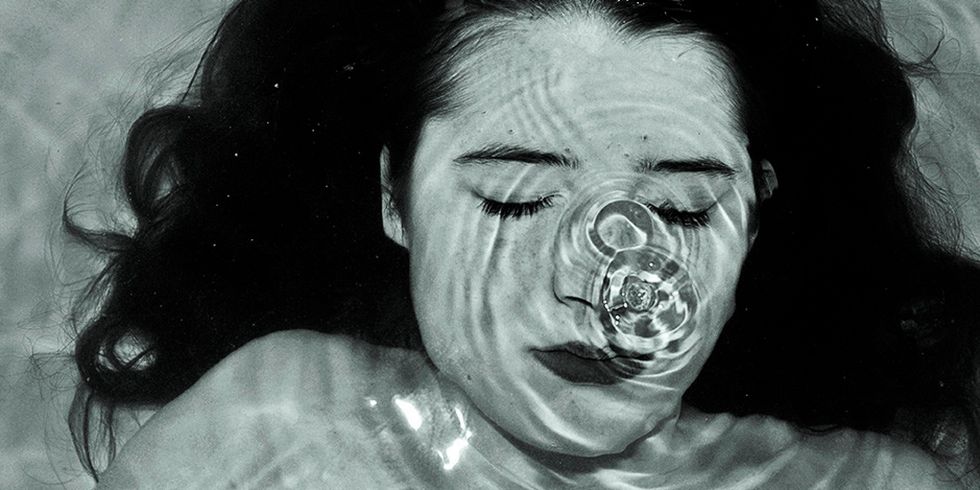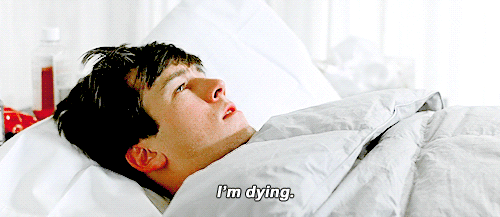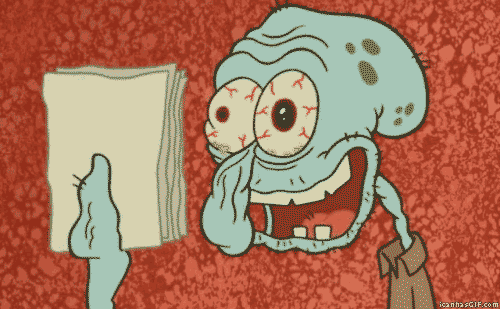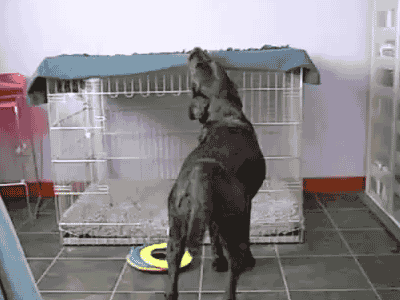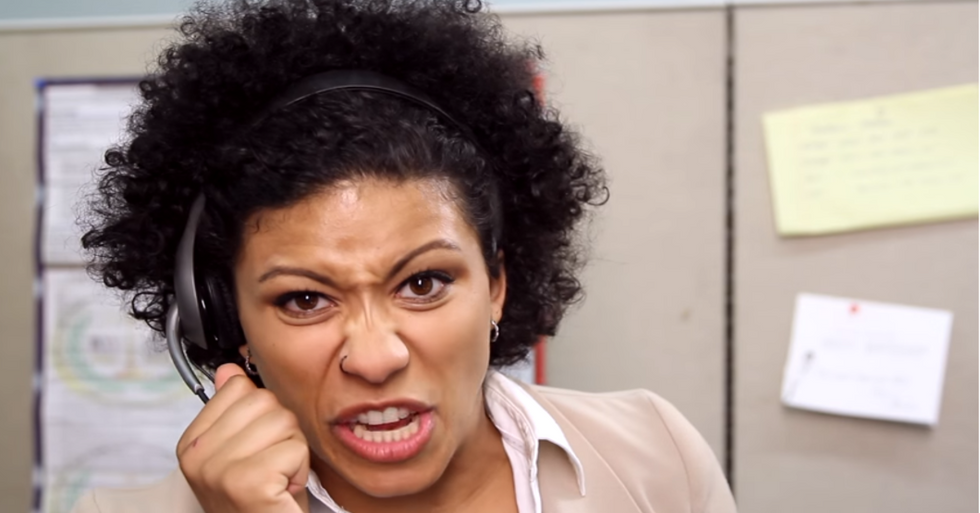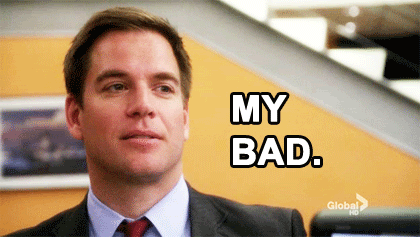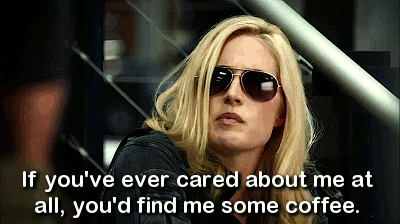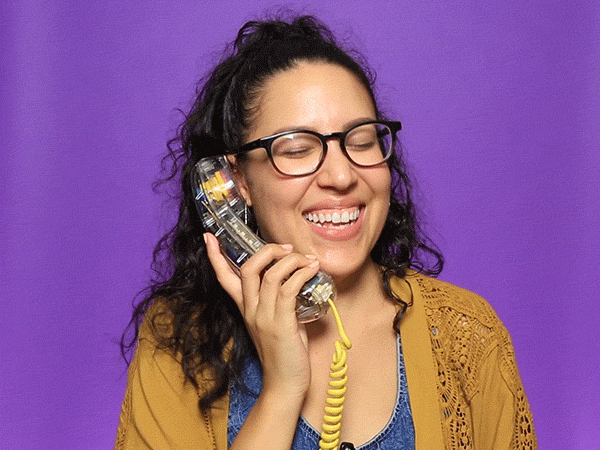(To my reader: Please note that the following article describes my experience with severe depression and anxiety.)
Before I went to college, I often imagined what the life experience everyone talked about had in store for me. Being the dreamer I am, while most of my friends thought of studies, sports, and socializing, visions of self-discovery danced through my head. In high school, I was a quirky girl who stuck to her books, the oldest sibling who worked hard to get straight A's and to be the role model type of person I believed my parents wanted me to be. On the surface, it probably looked like I had it in the bag: school, sports, friends, a knack for language, and an inexhaustible bubbly personality. My classmates often commented on how I seemed so positive and happy all of the time. Little did they--or I--know that the truth was that I suffered from depression and anxiety that had a significant impact on my ability to function in ways that my peers could. My teachers said I was bright, but I spent all night every night doing homework and didn't feel like spending time with my friends. I even isolated myself from my family.
Through heaps of support and my parents' awareness about mental health matters, I was able to pull through high school as 7th in my class and even get a 32 on my ACT so I could go to my dream college. I had high hopes for college as a new beginning and vowed to do less studying and more socializing because what I yearned for even more than success in academics or a career was to finally feel part of something greater than myself. But I had some more self-discovery to do before that could be fully possible. My first few semesters were academically successful (I had a 4.0 in honors coursework for my first year and a half), but after my third semester, when I took a leap and met new people I clicked with and really thrived socially for the first time in my life, things took a turn for the worse. My fourth semester, I all but completely stopped sleeping, eating, talking to people, or even studying. Scariest of all, after being the person who cared too much about everything, I didn't care about anything at all. And I was more than just sad and disconnected--I was exhausted, scared, and most of all angry. Why was this happening to me, and why did nothing I did--going to class, talking to friends, going to the gym--seem to make me feel better? To make a long story short, after seeking out the help of a university counselor, a doctor at my college's clinic, and my parents, last semester I was diagnosed and began treatment for the major depression and generalized anxiety that seemed to rule my life.
During that dark period, I often considered taking my own life. If I didn't have the medical care and informed support of my family and friends, I'm not sure how I would be doing now. But, above all, I believe that if I weren't so lucky to have parents trained as mental health professionals, I don't think I would have been brave enough, or even know to reach out for help. Because, besides my roommate and close friends, who were thankfully also familiar with mental health issues, other people I came into contact with at college likely would not be able to assist me in getting the help I needed either because they weren't sure what was going on or because they felt uncomfortable with the subject. For these reasons, I believe it is extremely important for us as college students--and emerging adults in general--to be informed about mental illness so we are prepared should we or people important to us begin to experience mental health challenges. The truth is that mental illness should be treated with the same seriousness as physical illness. If something were to be wrong with your body, you would go to the doctor. You'd think this reasoning would be easily applied when something starts to go wrong with your brain--which is what a mental illness comes from--but people who experience challenges with their moods and behaviors are much less likely to seek professional help than those dealing with problems related to their physical health due to the stigma associated with mental illness. Many people, due to stigma or just a lack of information, do not realize the immense influence mental illness can have on someone's overall quality of life.
To complicate matters more, many people first experience challenges related to mental health when they leave home to go to college. The new environment, separation from supportive family and friends, and changing responsibilities and possibilities associated with the college experience are all stressors that can be overwhelming to new students. Having been a new student myself, I remember how difficult it could be to ask my parents or other adults for help with everyday things because I was trying to demonstrate to these very people that I could be independent. But college students need to remember that, in most cases, they are not entirely independent yet; they are learning how to be independent, and a big part of independence is knowing when and how to ask others for help. In reality, however, experiencing a mental illness often means experiencing stigma, which prevents not just young college students, but even experienced adults from seeking help. In fact, a study cited in a recent report by the Center for Disease Control and Prevention on attitudes towards mental illness found that only 35%-67% of adults felt that others were "caring and sympathetic to people with mental illness" (Attitudes Towards Mental Illness: Results from the Behavioral Risk Factors Surveillance System). Moreover, mental illness is especially complex to identify and treat because, unlike many physical illnesses, its sources and many of its symptoms are invisible. From a physiological perspective, mental illness is rooted in the brain; but not only does the brain remain largely uncharted territory, but psychologists find that the onset of mental illness is caused by a complex combination of nature and nurture factors, or in other words, the unique life experience of the individual. Pervasive negative thoughts and excessive worrying, the primary symptoms of major depression disorder and generalized anxiety disorder, respectively, are private experiences that cannot be detected by others until they start to affect the person's outward behavior. Moreover, treatment and awareness of mental illness are earlier on in its development than physical illness. One major concern my family and I faced when I was younger was whether I should begin to take medication because my dad knew that medicines to treat depression and anxiety could affect my still-developing brain in important and unforeseeable ways. However, the treatment and medication I have received from a board certified psychiatrist have been vital to my recovery, and I would strongly suggest seeking this kind of care to anyone struggling with a mental illness that affects their quality of life.
I believe that, even though the fact of mental illness may further complicate an already-difficult life stage, college students who are educated about it can use their knowledge to support peers who may be struggling as well as help to cultivate a more supportive university-wide and even worldwide community by informing others and treating everyone with kindness, especially those who may be dealing with mental health challenges. So, what I hope to see is our generation of passionate and civic-minded young people using their compassion and unprecedented interconnectedness through social media to inform others and themselves. We can teach each other about this important issue that affects 1 in 4 college students so the 40% who do not ask for help are empowered to get the life-changing care they need before they enter the "real world" ("The Top 5 Mental Health Challenges Facing Students").
After 6 months of treatment, I am feeling much better and happier than I have in a long time. I am looking forward to the coming fall semester and hope to pursue my dreams with newfound energy and a healthier mind. It has taken the time and energy of my loved ones to get me to the place I am now in my recovery, but they assure me that they wouldn't have it any other way. I just keep thinking how awesome it would be if everyone could begin to demonstrate this compassionate attitude towards people with mental illness--or any human being, really, because, as the saying goes, "everyone you meet is fighting [some kind of] a hard battle".
I've included the sources from which I found the statistics I used in this article as well as additional resources so that you can learn more about mental illness if you would like to. I would also appreciate it if you could share this article with a friend or two, but if not, I am very glad that you have taken that time to read it.
Article sources:
"The Top 5 Mental Health Challenges Facing Students."
Centers for Disease Control and Prevention, Substance Abuse and Mental Health Services Administration, National Association of County Behavioral Health & Developmental Disability Directors, National Institute of Mental Health, The Carter Center Mental Health Program. Attitudes Toward Mental Illness: Results from the Behavioral Risk Factor Surveillance System. Atlanta (GA); Centers for Disease Control and Prevention; 2012.



